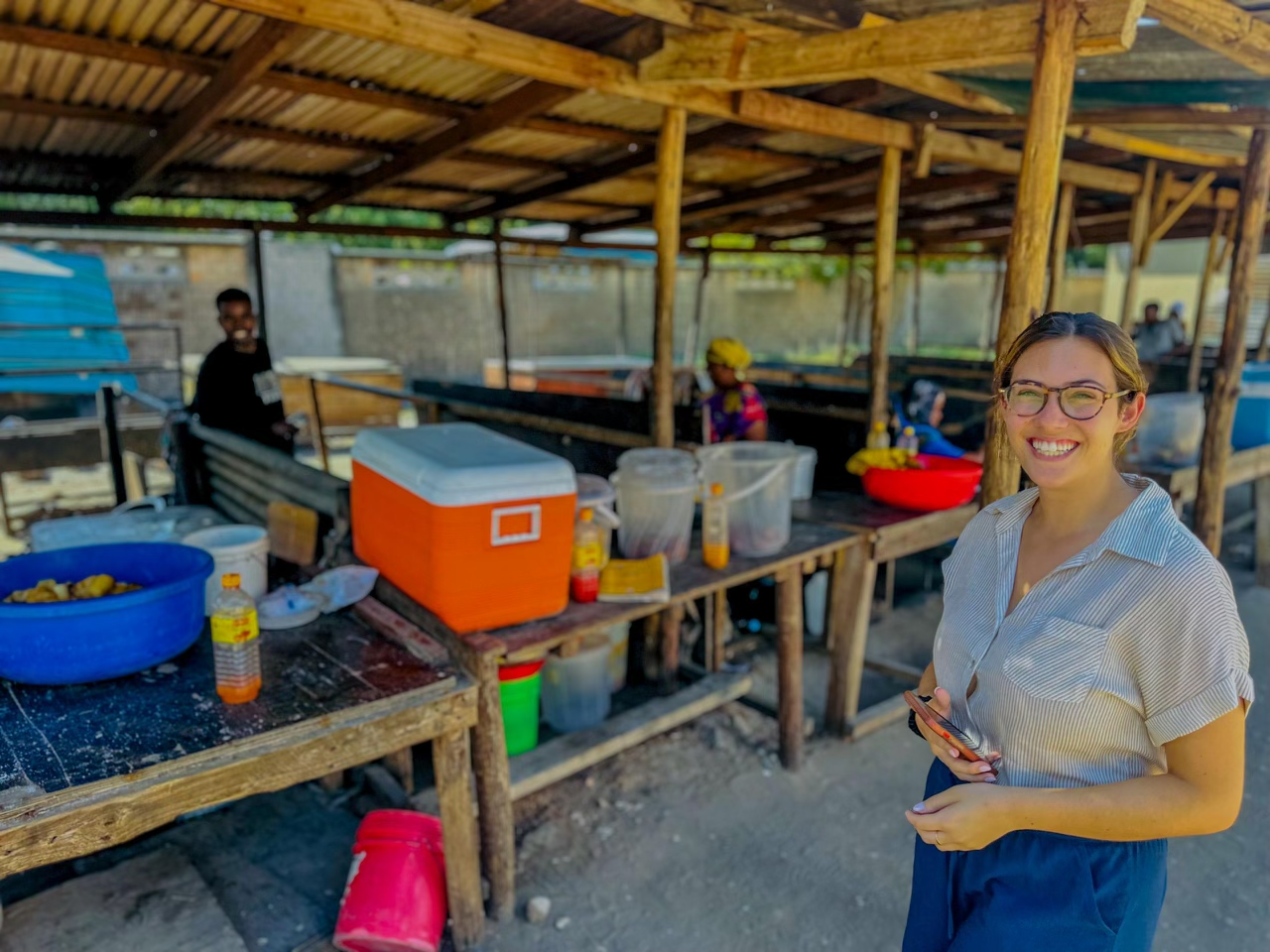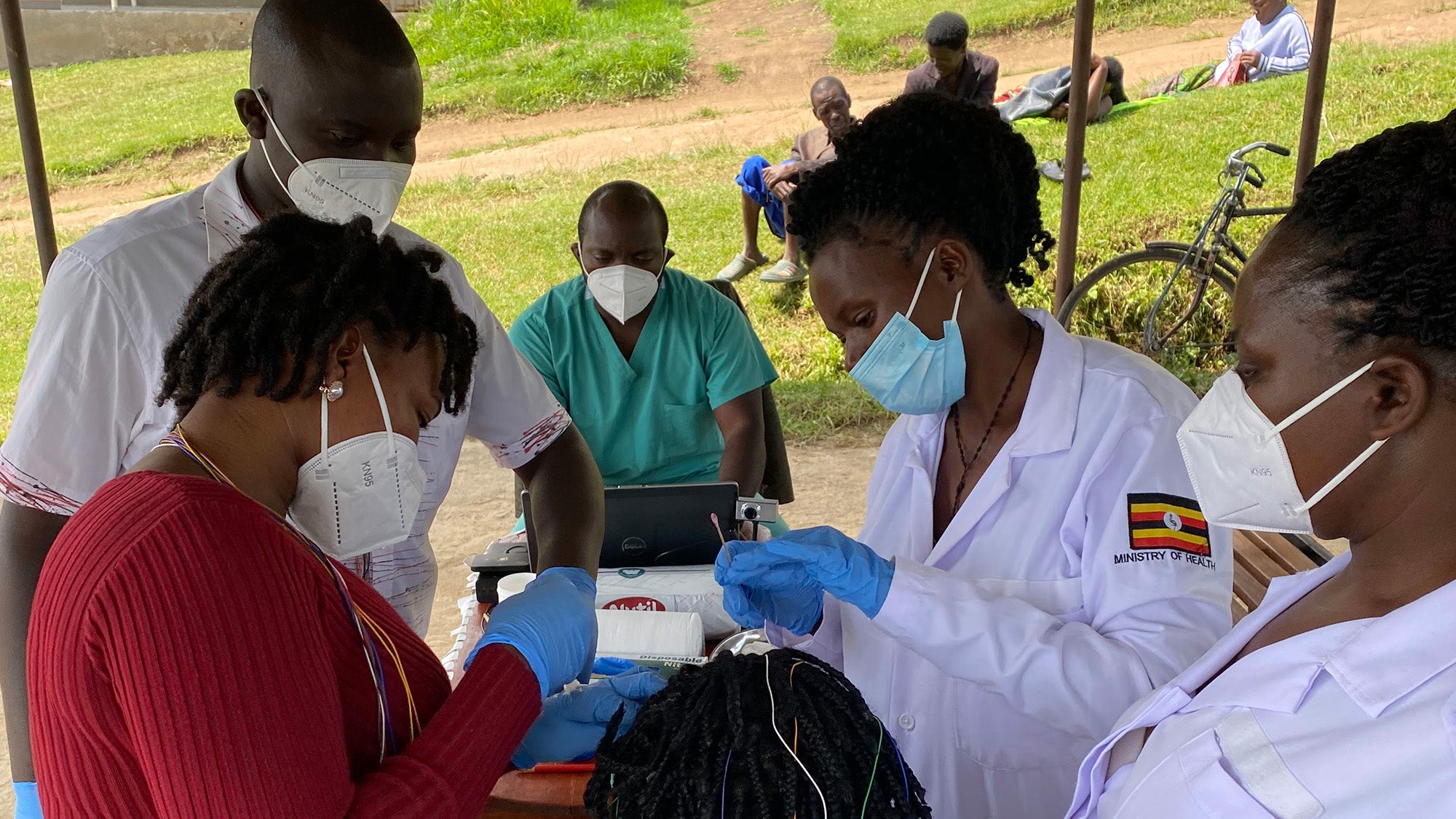Nutrition and Global Health Concentration
Introduction
The Nutrition and Global Health Concentration blends research, teaching, and collaboration to address some of the biggest global health challenges we are facing today. Through interdisciplinary training, this concentration is designed to prepare future public health professionals, dedicated to developing innovative solutions and novel evaluation approaches, with a focus on low- and middle-income countries.
The concentration emphasizes the relationship between nutrition and health outcomes, including infectious and noncommunicable diseases, human growth, and economic development.
The concentration provides students with an interdisciplinary education about nutrition in a global context, with a particular focus on the relationship between nutrition and infectious and noncommunicable diseases, nutrition and human growth and economic development, nutrition in humanitarian crisis situations, and also the dynamic interplay between epidemiologic, nutritional, and demographic transitions around the globe.
Rapidly changing trends in nutrition and disease demand new research strategies and the development of innovative products, processes, and delivery systems. In this concentration, you will seek to understand the full range of malnutrition and its causes and effects to develop new solutions to assist vulnerable populations worldwide in improving public health.
Curriculum
The Nutrition and Global Health Concentration requires 6.25 credits for successful completion.
- ID214 Nutritional Epidemiology (2.5 credits) OR ID217 Nutrition and Global Health (2.5 credits).
- Students are strongly encouraged to take both ID214 and ID217 if possible, but only one is required.
- NUT203 or NUT206 Nutrition Seminars (1.25 credits, or can be taken without credit).
- At least 2.5 credits from the list of elective courses.
| Elective Coursework | Credits | |
| NUT 202 | Biological Basis of Human Nutrition | 5 |
| GHP 272 | Foundations of Global Health & Population | 5 |
| GHP 230 | Intro to Econ with Applications to Health and Development | 2.5 |
| GHP 500 | Measuring Health System Quality and Responsiveness | 2.5 |
| GHP 216 | Noncommunicable Diseases | 2.5 |
| SBS 201 | Society and Health | 2.5 |
| NUT 203 | Nutrition Seminars Part I | 1.25 |
| NUT 206 | Nutrition Seminars, Part II | 1.25 |
| ID 238 | Programs and Principles of Public Health | 2.5 |
| SBS 265 | Program Planning: Design and Evaluation | 2.5 |
| SBS 231 | Community Intervention Research Methods | 2.5 |
| SBS 509 | Health Communication in the 21st Century | 2.5 |
| EH 278 | Human Health and Global Environmental Change | 2.5 |
| EPI 223 | Cardiovascular Disease Epidemiology I | 2.5 |
| EPI 233 | Research Synthesis & Meta-Analysis | 2.5 |
| EPI 202 | Epidemiological Methods 2 | 2.5 |
| BST 210 | Applied Regression Analysis | 5.0 |
Students have the opportunity to cross-register for courses at the Tufts University Gerald J. and Dorothy R. Friedman School of Nutrition Science and Policy.
There are a number of active collaborative research activities between faculty at Harvard Chan and Tufts. The Friedman School offers a range and depth of nutrition courses that are invaluable to those pursuing their concentration specialty.
The full course catalog can be found on the Tufts website.
Please visit the Harvard Chan Registrar’s Office for more information about cross-registration.
Goals
- To provide training on the methods, knowledge, and translation/implementation skills necessary to conduct nutrition and global health research
- To provide training on the methods, knowledge, and translation/implementation skills necessary to conduct nutrition and global health research
- To bring together students, faculty, and researchers from varying disciplines and departments in these domains
- To create a focal point within the School for key external collaborations and ventures to address the needs of populations affected by the most pressing global health issues
Enrollment
This concentration is open to SM-1, SM-2, MPH, DrPH, ScD, and PhD students who are enrolled in one of the five participating departments.
Students completing the concentration should have a basic understanding of nutritional science and the biological aspects of nutrition (including biochemistry, physiology and lab methods); recognize social, cultural, agricultural, economic and public policy implications for nutrition; and be able to implement scientific and analytic methods to describe and understand the impact of these factors on public health.
Students are also expected to have professional experience or an academic background in nutrition and global health, as well as an interest in gaining a deeper understanding of the intersection of nutrition and global health.
Students will be responsible for fulfilling the masters or doctoral degree requirements of their respective departments, in addition to the requirements of the Concentration.
Nutrition and Global Health students will be required to complete a minimum of 6.25 core course credits and are encouraged to take at least 5 elective credits in courses suited to their specific interests. The Concentration convenes monthly Work-in-Progress (WIP) meetings for students to receive feedback on their research. Students should attend all Work-in-Progress meetings and are required to present at one meeting. In addition, there is a master’s thesis/doctoral paper requirement for the concentration.
The concentration will award no degrees directly. After verification of completion of all course and paper requirements, students in the concentration will receive an official letter and certificate documenting their successful completion of the Nutrition and Global Health Concentration.
Due on Monday, September 8, 2025, by 9:00am ET.
By the deadline, students who are interested in joining the concentration should complete and submit the following materials to Petra Huang (pshuang@hsph.harvard.edu):
- The application form
- A copy of your CV/resume
- A short statement of interest in the concentration and the field of nutrition and global health (1-pg max)
After submitting your materials, the concentration co-chairs, Drs. Wafaie Fawzi and Christopher Duggan, will review all applications and admission will be offered to qualified candidates within two weeks of the submission date.
Learn More About the Nutrition and Global Health Program’s Research and Training Initiatives
This concentration is managed by the Nutrition and Global Health Program and is a collaborative effort between the Department of Global Health and Population and the Department of Nutrition. Visit the Nutrition and Global Health Program website to explore the ongoing research projects and training programs and discover more about the initiatives and how you can be a part of this dynamic field.
News and Highlights

Spring 2024 Graduate Research Travel Grant Recipient Spotlight: Lexi Farina
The Role of Food Vendors in School Food Environments: A Qualitative Study in Dar es Salaam, Tanzania





